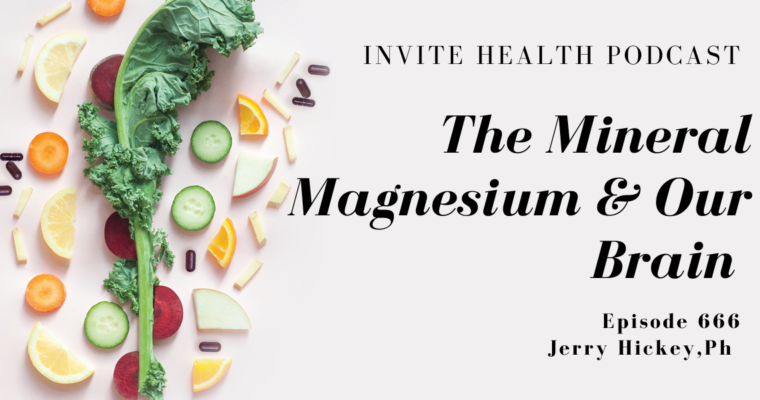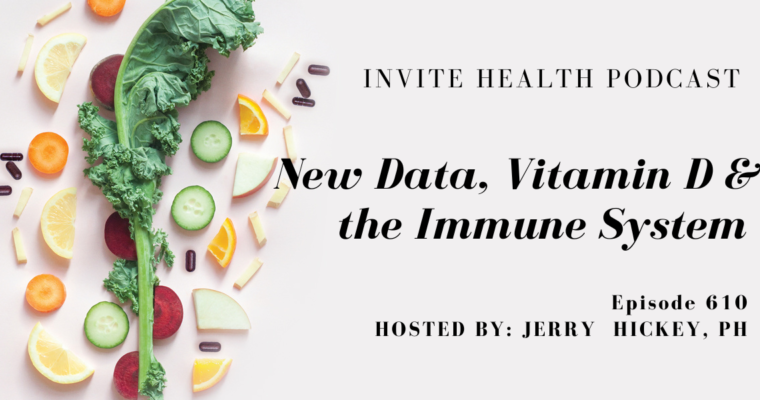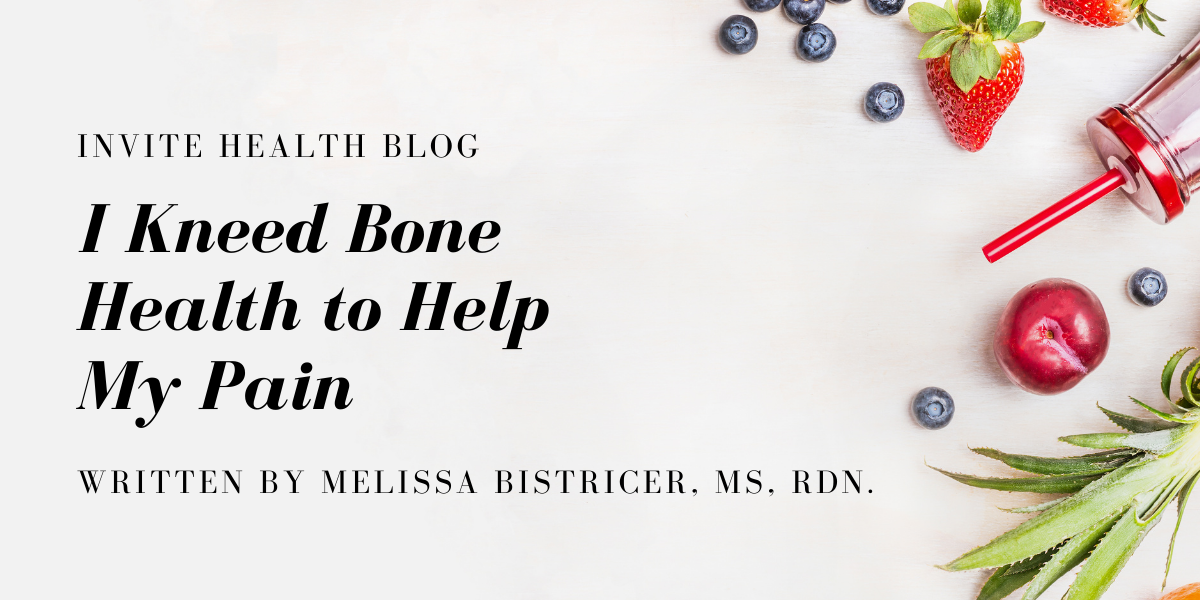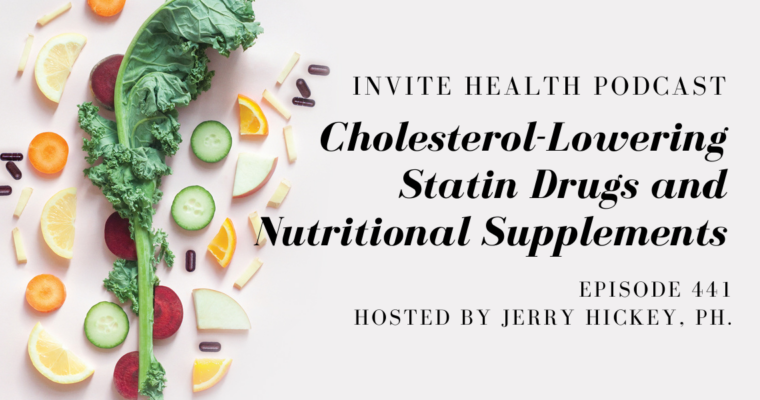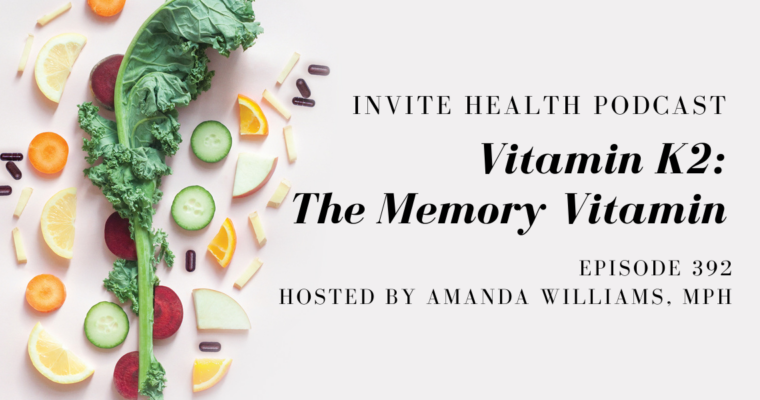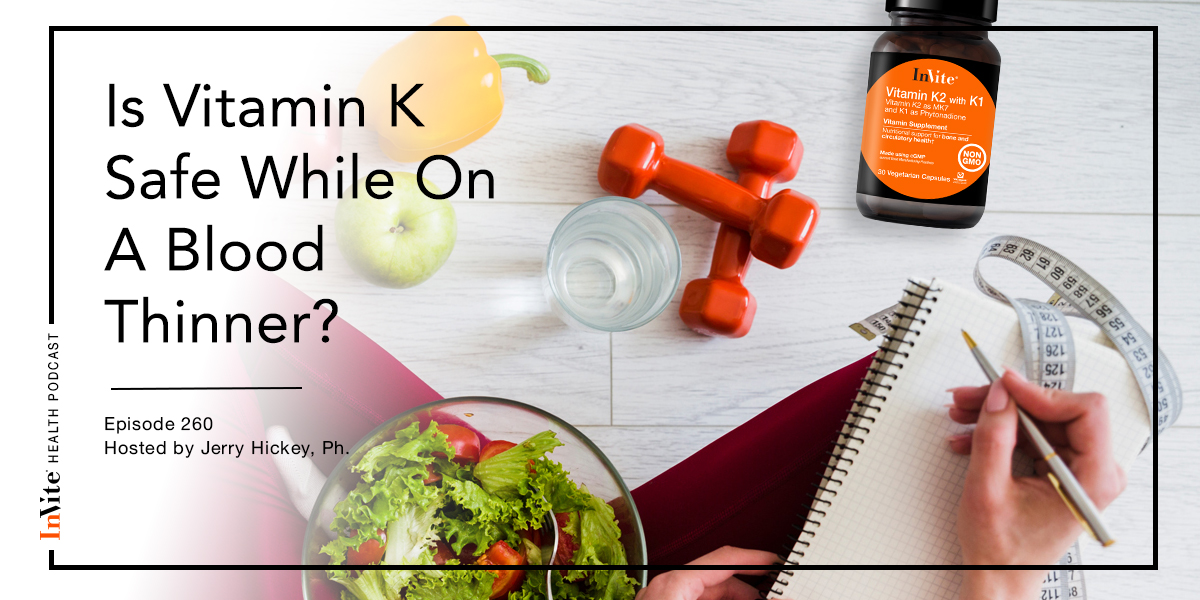bone health
Written by Melissa Bistricer, RDN
For further questions or concerns email me at mbistricer@invitehealth.com
Think down to just your bones, your skeleton self, remove all the skin, cartilage, and tendons. There are over 206 bones in the adult human body, this includes the skull, spine, ribs, arms, and legs. What can you do today to help support your bone health?†
The Role of Bone Health in the Body
Our bones help to support our movement, protect our brain, heart, and other organs from injuries. The bones store calcium and phosphorus and release the minerals into the body when needed to keep our bones strong. Bones are living tissue, they are consistently being broken down and then being replaced. As we age the bones become brittle and are easier to breakdown because they have a harder time being replaced again. The breakdown of the bones can lead to increased inflammation, pain, stiffness, and discomfort.†
BONE HEALTH BASICS – INVITE HEALTH PODCAST, EPISODE 405 >> Listen Now!
Common Bone Problems
Decreased bone mass, also known as osteopenia, occurs when the bones in our body start to lose calcium and other minerals.†
Osteoporosis is when the bone breaks down easily and there is a decrease in the amount and thickness of the bone tissue, which is commonly seen in post-menopausal women.†
Muscle Weakness which is commonly associated with arthritis. The joints become stiff and weakened, leading to a reduced ability to do common daily activities such as walking, standing and going up and down stairs.†
Risk of Injury especially in the elderly due to a lack of balance may lead to the risk of falling.†
Keeping your bones strong is advised at any age. Luckily, we can help to try and minimize symptoms through exercising, diet and nutritional supplements.†
Nutritional Diet Recommendation
Anti-Inflammatory Diet: This diet will help to reduce the bone mineral density that is being lost in the body. Ohio State University studied the effect of consuming a high anti-inflammatory diet on women. The results seemed to indicate the individuals lost less bone density when consuming a high intake of anti-inflammatory foods. An anti-inflammatory diet consists of consuming a high intake of vegetables, fruits, whole grains, and foods containing omega-3 fatty acids such as fatty fish (salmon).†
Diet Rich in Vitamin D and Calcium: Calcium is the #1 mineral that helps to build and maintain bones. Vitamin D will help the body absorb calcium, so if you’re taking in lots of calcium but are deficient in vitamin D the calcium will go to waste. Foods that are rich in calcium are dairy products, or green leafy vegetables like kale, broccoli, and collard greens. Vitamin D has minimal foods since it comes naturally from light therefore supplementation may be your best choice. Some foods that have vitamin D are fortified vitamin D foods, eggs, mackerel, salmon, or sardines.†
MAINTAINING AND BUILDING MUSCLE – INVITE HEALTH PODCAST, EPISODE 539 >> Listen Now!
Vitamins, Minerals, & Herbs
Nutrition is where it starts to improve and build up your bones in the body. Given the proper recommendations for vitamins and minerals the body has the optimal potential to regenerate. These nutrients will help to play a critical role in activating bone building and ensure when bone is breaking down everything is functioning properly.†
Collagen in the human body is in over 25 forms, 90% is formed by collagen type 1. Collagen type 1 and type 3 are essential for repair and support in connective tissues. At the age of 25 individuals start to lose collagen, they start to lose 1.5% per year therefore at the age of 60 you have lost half your natural collagen supply.†
Peptan B 5000, found in Invite’s Collagen Hx, has been studied to help support cartilage and joint health. Collagen peptides have been assessed to help individuals with dry skin and improve skin hydration within 8 weeks.† 2
Boswellia Serrata has been studied to treat inflammatory diseases such as rheumatoid arthritis, osteoarthritis, and asthma. Boswellic acid contains AKBA (3-O-acetyl-11-keto-beta-boswellic acid) and has been studied to help anti-inflammatory actions.†3
Calcium citrate in this form will help to enhance the amount of calcium absorbed in a larger surface area in the gut. The main goal is to keep the calcium out of the blood vessels and soft tissue and allow the calcium to be deposited into your bones.†
Vitamin D3 (calcitriol) and Vitamin K (phylloquinone) are fat-soluble vitamins that play a role in calcium metabolism. Vitamin D and K are important for bone and cardiovascular health. The combination of vitamin D and K are necessary as vitamin D promotes the production of vitamin K to help build protein, which is required for vitamin K carboxylation in order to function correctly.†4
Vitamin K, Boron, Magnesium, Silicon are widely becoming more known for their importance for bone health.5 Newer research determines the use of magnesium to be beneficial for bone health, especially for women postmenopausal. Silicon is another nutrient helpful for bone health and deficiency can lead to poor skeletal development.†5
The Bone Health Program
Has these nutrients within to unique formulas called Bone Food Powder and Collagen HxⓇ. They are comprehensive supplements to help to support aging bones. Bone Food Powder has elements such as Vitamin K, D, Calcium, and Magnesium to help with bone building. Collagen supports cartilage, connective tissue, skin, hair, nails and bones.†
For further questions or concerns related to dietary and nutritional supplement recommendations email me at mbistricer@invitehealth.com
Sources
1. Encyclopedia, M. and joints, A., 2022. Aging changes in the bones – muscles – joints: MedlinePlus Medical Encyclopedia. [online] Medlineplus.gov. Available at: <https://medlineplus.gov/ency/article/004015.htm#:~:text=People%20lo HYPERLINK “https://medlineplus.gov/ency/article/004015.htm”se%20bone%20mass%20or,cushion%20(called%20a%20disk).> [Accessed 24 March 2022].
2. Asserin J, Lati E, Shioya T, Prawitt J. The effect of oral collagen peptide supplementation on skin moisture and the dermal collagen network: evidence from an ex vivo model and randomized, placebo-controlled clinical trials. J Cosmet Dermatol. 2015;14(4):291-301. doi:10.1111/jocd.12174
3. Abdel-Tawab M, Werz O, Schubert-Zsilavecz M. Boswellia serrata: an overall assessment of in vitro, preclinical, pharmacokinetic and clinical data. Clin Pharmacokinet. 2011;50(6):349-369. doi:10.2165/11586800-000000000-00000
4. van Ballegooijen AJ, Pilz S, Tomaschitz A, Grübler MR, Verheyen N. The Synergistic Interplay between Vitamins D and K for Bone and Cardiovascular Health: A Narrative Review. Int J Endocrinol. 2017;2017:7454376. doi:10.1155/2017/7454376
5. Price CT, Langford JR, Liporace FA. Essential Nutrients for Bone Health and a Review of their Availability in the Average North American Diet. Open Orthop J. 2012;6:143-149. doi:10.2174/1874325001206010143


